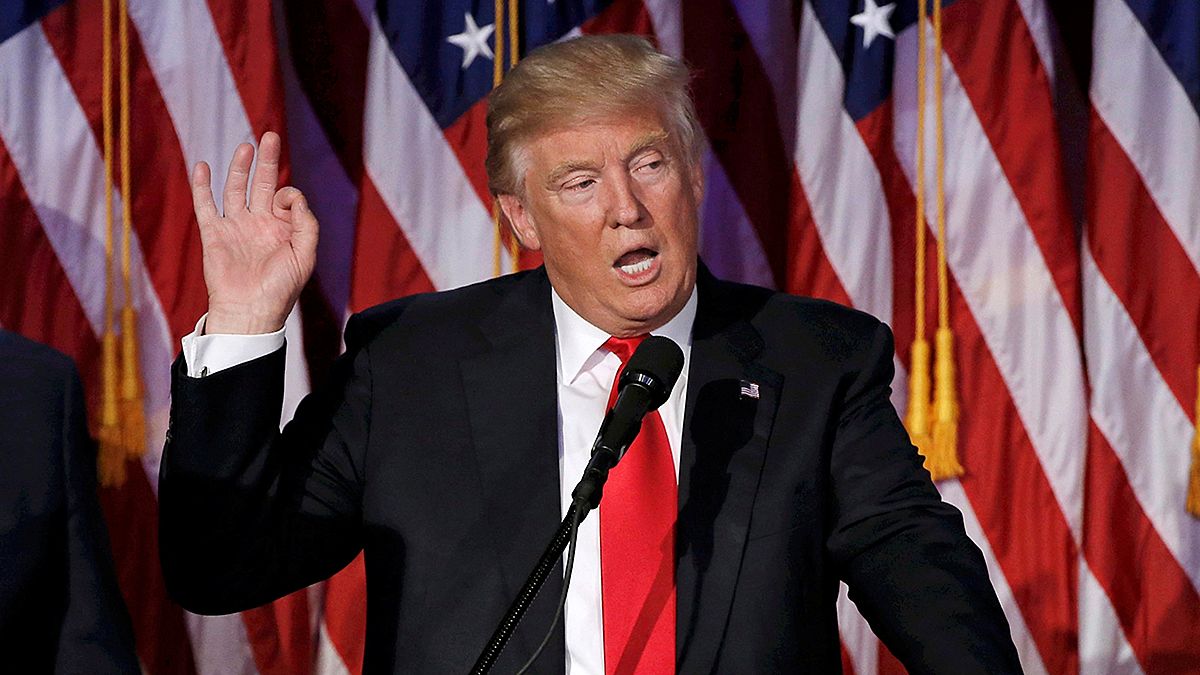Donald Trump’s election triumph undermines Europe’s security and invites Vladimir Putin to launch further invasions, it’s been claimed.
The president-elect suggested in July that coming to the aid of a NATO ally would depend on how much the country was spending on defence.
His subsequent election has raised major security fears in Latvia, Lithuania and Estonia – all of whom rely on NATO support to police their airspace.
“Trump’s victory undermines Europe’s security,” said Philippe Legrain, a visiting fellow at the London School of Economics’ (LSE) European Institute. “His admiration for Vladimir Putin, Russia’s authoritarian leader, is alarming. Putin laments the break-up of the Soviet Union, wants to recreate a Russian sphere of influence in the country’s neighborhood and has already invaded Georgia and Ukraine.
“Trump’s suggestion that his commitment to defending NATO allies is conditional invites Putin to go further.
“The Baltic republics of Estonia, Latvia, and Lithuania, NATO members that were once part of the Soviet empire and have substantial Russian minorities, are most at risk. While a common external threat ought to drive the EU to increase defence spending and deepen its security cooperation, EU-skeptic, austerity-hit European voters may have little appetite for this.
“Indeed, many European governments seem tempted to seek to appease Putin, rather than stand up to him.”
Does Trump have a point about NATO members’ defence spending?
Members of NATO – a security alliance established after World War II between the US, Canada and European countries – have a target to spend at least two percent of their GDP on defence.
However NATO data shows only five of the alliance’s 28 members met this target in 2015: the US, Greece, the UK, Estonia and Poland.
Lithuania and Latvia have pledged to reach the 2 percent goal by 2018.
The US contributes 70 percent of NATO defence spending and the alliance’s secretary-general Jens Stoltenberg has admitted other members must commit more money.
Effie Pedaliu, an expert on international history from LSE, said European countries would have to up their game.
“If they do not want to undermine NATO, they had better start reviewing their defence budgets as soon as possible and step up their commitments,” she added. “Jens Stoltenberg, will have to show himself to be the equal of Manlio Brosio in his diplomatic skills to prevent the US and its European NATO allies from reopening a set of mutual recriminations that have not been voiced since the mid-1960s over the Vietnam war.”
Is the US really likely to refuse to help a NATO ally?
NATO’s ‘one-for-all-and-all-for-one’ defence commitments are enshrined in article five of the alliance’s founding treaty.
Trump has nevertheless signalled that the US could be ready to overlook the agreement, which has been triggered just once, in the aftermath of the 9/11 attacks.
Some, however, hope his comments were more electioneering than firm policy.
“I really hope that the rhetoric on defence and Russia was mostly a part of the election campaign,” Saulius Skvernelis, Lithuania’s incoming prime minister, told Reuters. “I hope the election campaign is now over, and it is not yet time to panic.”
The anxiety Trump’s threats have caused in some former Soviet states is in stark contrast to just a couple of weeks ago when NATO was finalising plans to send troops to Baltic countries and eastern Poland.
That commitment was designed to ease concerns in the region after of Russia’s annexation of Crimea, worries Russian president Vladimir Putin has called imaginary.
Will the EU take a more central role on defence?
Trump’s threats have given more urgency to Franco-German plans to co-operate more on defence.
The plan envisages relatively modest moves – increasing joint European spending on military missions, developing assets such as helicopters and drones and expanding peacekeeping operations abroad.
It does not envisage formation of a European army, though it foresees a planning centre for civilian and military missions being set up. European planners are at pains to stress it will not duplicate or rival the work of NATO.
“Europe must not wait for the decisions of others. It should defend its interests and its strategic role in the world,” French Foreign Minister Jean-Marc Ayrault said as he arrived for a special session of the EU’s 56 foreign and defence ministers in Brussels on Monday.
Deeper EU co-operation on defence was given another shot-in-the-arm earlier this summer, when Britain, against further integration in this area, quit the bloc.
